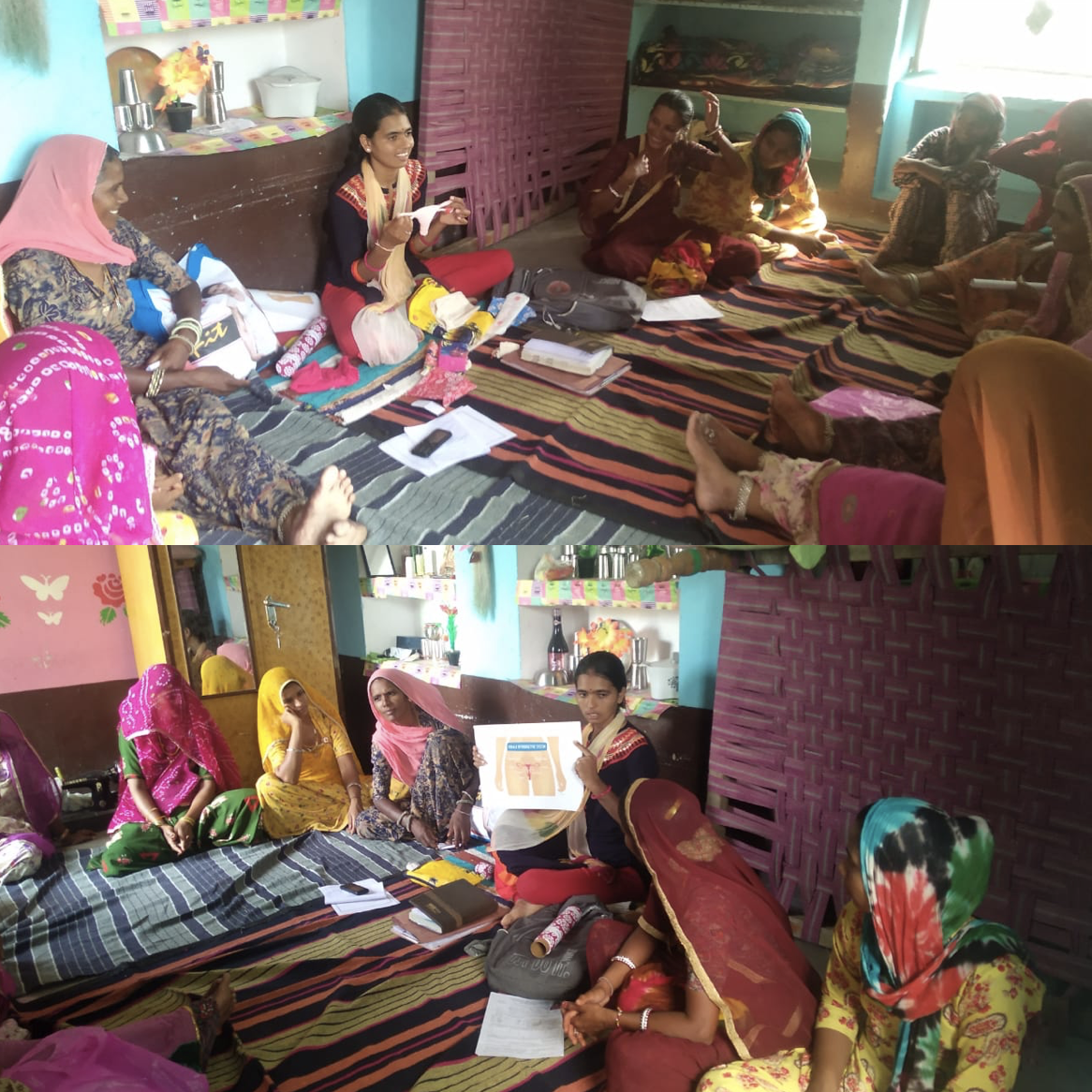EcoFemme x Georgetown RISHI Pilot Project
The Issue
A major challenge facing rural women in rural Rajasthan is the stigma associated with menstruation. Rural women are rarely given information regarding their menstrual health and hygiene, making them prone to infections. In addition, many rural women lack affordable access to feminine hygiene products. The COVID-19 pandemic has only exacerbated the issue of limited access to high quality, affordable and effective sanitary products in rural Rajasthan. After conducting a thorough desk review on four different women’s health issues in rural Ajmer in 2020 and extensive primary and secondary research on the ground in rural Beawar over the past year, we decided to address this problem by adopting a two-pronged approach described below.
Our Two-Pronged Approach
Between July-November 2021, Georgetown Project RISHI and EcoFemme partnered to launch a pilot project in two villages in rural Ajmer, Rajasthan: Nokheda and Rudlai Villages.
30 women between both villages participated in our pilot program and attended a three-hour long menstrual health educational workshop led by our Program Manager, Anita Singh in their respective villages. The women learned about female anatomy, the menstrual cycle, and different sanitary products available at the market.
Thanks to Georgetown University’s SIPS Fund, Georgetown RISHI was able to distribute 6 reusable, eco-friendly EcoFemme sanitary pads plus a travel pouch to each female participant. After 4 months of using EcoFemme pads, Anita conducted EcoFemme’s end-line survey in Nokheda and Rudlai to understand our participants’ experiences with the product.
Results
The results were overwhelmingly positive with women citing comfort, ease-of-use, and sustainability as important reasons for liking the pads. All 30 women recommend EcoFemme pads to other women! Based on our positive results from our Pilot Program, we decided to scale up our menstrual health initiative in rural Ajmer.



